Your cart is currently empty!
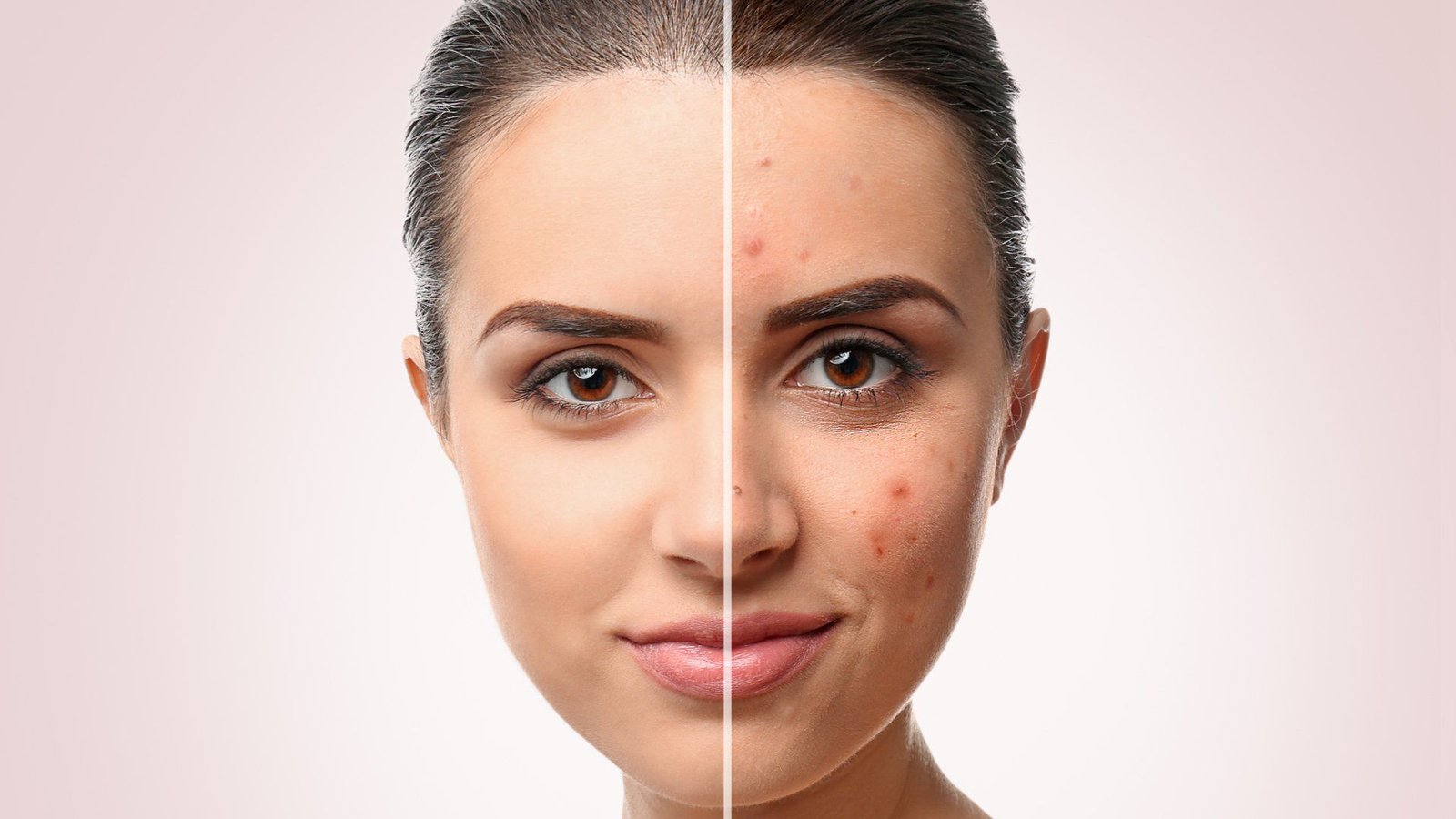
How to Banish Pimples: Effective Strategies for Clearer Skin

Table of Contents
Pimples, those pesky little blemishes that seem to pop up at the most inconvenient times, can be a source of frustration for many. Whether you’re a teenager grappling with hormonal changes or an adult dealing with stress-induced breakouts, finding effective strategies to banish pimples is crucial for achieving clearer, healthier skin. In this comprehensive guide, we’ll explore the underlying causes of pimples, common misconceptions about acne, and evidence-based strategies to tackle breakouts head-on. From skincare routines to lifestyle adjustments, Pinuy Cosmetics cover everything you need to know to bid farewell to pimples and embrace a smoother complexion.
Understanding the Causes of Pimples
Pimples, those unwelcome guests that often show up uninvited on our faces, can be quite frustrating to deal with. However, understanding the underlying causes of pimples is the first step towards effectively managing and preventing them. pimples vulgarism, another name for pimples, is a condition where bacteria, oil, and dead skin cells clog hair follicles. This leads to inflammation, swelling, and the characteristic red bumps commonly associated with acne.
Several factors contribute to the development of pimples:
Overproduction of Sebum: Sebum is an oily material secreted by the skin’s sebaceous glands.While sebum is essential for maintaining skin hydration and lubrication, excess production can lead to clogged pores and acne. Hormonal changes, particularly during puberty, can stimulate the sebaceous glands to produce more sebum, making adolescents more prone to acne breakouts.
Clogged Pores: When dead skin cells and excess sebum accumulate within hair follicles, they form a plug, blocking the pore. This creates an ideal environment for bacteria, particularly Propionibacterium acne (P. acne), to multiply. The proliferation of bacteria triggers an inflammatory response, leading to the formation of pimples.
Bacterial Infection: P. acnes, a type of bacteria that naturally resides on the skin, plays a significant role in the development of acne. When trapped within clogged pores, these bacteria multiply rapidly, releasing inflammatory substances that contribute to the redness and swelling associated with pimples.
Hormonal Fluctuations: Hormonal changes, such as those occurring during puberty, menstruation, pregnancy, and menopause, can influence sebum production and increase the likelihood of developing pimples. Androgens, a group of hormones including testosterone, play a key role in stimulating sebum production, making individuals more susceptible to acne during times of hormonal fluctuation.
Genetic Predisposition: Genetics also play a role in determining an individual’s susceptibility to acne. If one or both parents have a history of acne, there is an increased likelihood that their offspring will also experience acne breakouts.
Environmental Factors: Environmental factors such as pollution, humidity, and exposure to certain chemicals or irritants can exacerbate acne by increasing inflammation and disrupting the skin’s natural barrier function.
Understanding these underlying causes of pimples is essential for developing effective treatment strategies and prevention techniques. By addressing factors such as excess sebum production, clogged pores, bacterial infection, hormonal fluctuations, genetic predisposition, and environmental influences, individuals can take proactive steps to manage and minimize the occurrence of pimples.
Developing an Effective Skincare Strategy For Pimple

A consistent and tailored skincare routine is crucial for managing pimples and preventing future breakouts. Here’s a step-by-step guide to developing an effective skincare routine specifically designed to address acne:
Gentle Cleansing: Start your skincare routine by cleansing your face with a gentle cleanser formulated for acne-prone skin. Look for cleansers that contain ingredients like salicylic acid or benzoyl peroxide, which help to unclog pores and reduce inflammation without overly drying the skin. Steer clear of abrasive cleansers and vigorous scrubbing since these might aggravate acne by irritating the skin.
Exfoliation: Regular exfoliation is essential for removing dead skin cells and preventing clogged pores. However, it’s important to choose exfoliating products carefully, as harsh scrubs can damage the skin and worsen acne. Opt for chemical exfoliants containing ingredients like salicylic acid or glycolic acid, which gently dissolve dead skin cells and promote cell turnover without causing irritation.
Treatment Products: Incorporate treatment products specifically targeted towards treating pimples and acne. This may include spot treatments containing benzoyl peroxide or salicylic acid, which can help to reduce inflammation and dry out active pimples. Apply these treatments directly to affected areas after cleansing and exfoliating, and be sure to follow the instructions provided by the product.
Hydration: Despite having acne-prone skin, it’s important to maintain hydration to prevent excessive dryness and irritation. Choose a lightweight, oil-free moisturizer that won’t clog pores or exacerbate acne. Look for moisturizers labeled as non-comedogenic, meaning they are formulated to not block pores. Ingredients like hyaluronic acid or ceramides can help to hydrate the skin without adding excess oil.
Sun Protection: Protecting your skin from the sun is essential, especially when using acne treatment products that can increase sensitivity to UV radiation. Choose a broad-spectrum sunscreen with an SPF of 30 or higher, and apply it daily as the last step in your skincare routine. Look for oil-free or non-comedogenic sunscreens to avoid clogging pores.
Consistency: Consistency is key when it comes to skincare routines. Establish a daily regimen and stick to it, even on days when you don’t have active breakouts. Be patient and give your skin time to adjust to new products or treatments, as it may take several weeks to see noticeable improvements.
Consult a Dermatologist: If over-the-counter products and skincare routines fail to improve your acne, consider consulting a dermatologist for personalized treatment recommendations. They can prescribe topical or oral medications tailored to your specific needs and provide guidance on managing acne effectively.
By following these steps and developing a skincare routine tailored to your skin type and concerns, you can effectively manage pimples and achieve clearer, healthier skin over time.
Lifestyle Adjustments and Home Remedies for pimples
Lifestyle adjustments and home remedies can complement your skincare routine in managing pimples. Here are some effective strategies:
Healthy Diet: Opt for a balanced diet rich in fruits, vegetables, whole grains, and lean proteins. Avoid sugary, processed foods and dairy products, which may exacerbate acne for some individuals. Some studies suggest that foods high in omega-3 fatty acids, antioxidants, and probiotics can help reduce inflammation and improve overall skin health.
Keep Yourself Hydrated: To keep your skin hydrated and help remove toxins, sip lots of water throughout the day. Acne can be exacerbated by excessive oil production, which can be avoided by maintaining proper hydration, which also promotes skin cell renewal. Handle Stress: Prolonged stress can aggravate acne and lead to hormonal imbalances.
Manage Stress: Chronic stress can trigger hormonal imbalances and exacerbate acne. Practice stress-relief techniques such as yoga, meditation, deep breathing exercises, or spending time in nature to promote relaxation and reduce cortisol levels.
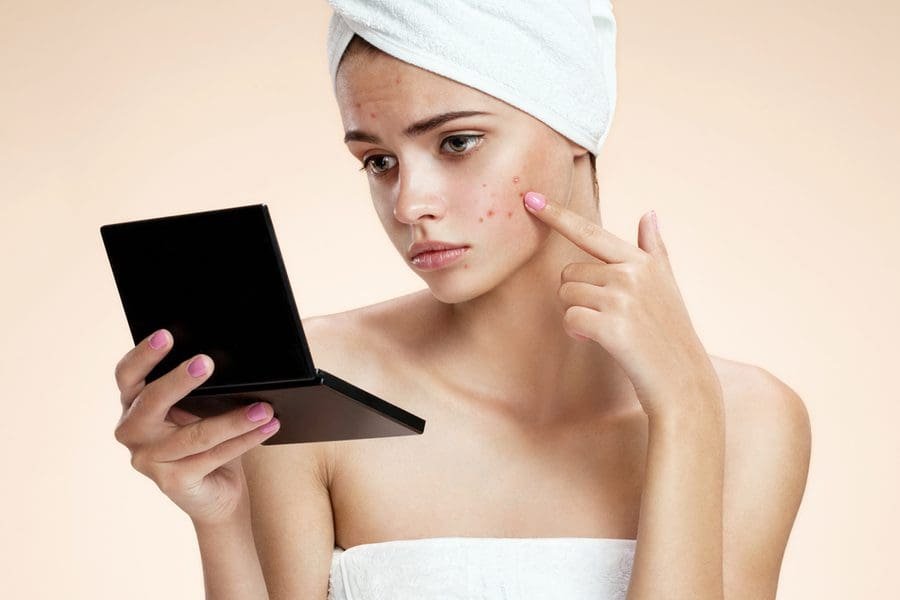
Quality Sleep: Aim for 7-9 hours of quality sleep each night to support skin regeneration and repair. Lack of sleep can contribute to increased inflammation and stress, which may worsen acne breakouts.
Avoid Touching Your Face: Keep your hands off your face to prevent transferring bacteria, dirt, and oils that can clog pores and lead to breakouts. Avoid picking, squeezing, or popping pimples, as this can worsen inflammation and increase the risk of scarring.
Cleanse After Exercise: Sweat and oil buildup during exercise can contribute to clogged pores and acne. After working out, cleanse your skin with a gentle cleanser to remove sweat, dirt, and bacteria.
Natural Remedies: Several natural ingredients have anti-inflammatory and antibacterial properties that can help reduce acne breakouts. These include:
Tea Tree Oil: Dilute tea tree oil with a carrier oil and apply it directly to pimples as a spot treatment.
Aloe Vera: Apply pure aloe vera gel to soothe inflamed skin and promote healing.
Honey: Apply raw honey as a mask or spot treatment to reduce inflammation and kill bacteria.
Green Tea Extract: Use green tea extract as a toner or apply cooled green tea bags to acne-prone areas to reduce inflammation and control oil production.
Limit Makeup Use: Avoid heavy, pore-clogging makeup products, especially during active breakouts. Opt for oil-free, non-comedogenic makeup formulations, and remove makeup thoroughly before bed to prevent clogged pores.
Change Pillow Cases Regularly: Dirty pillow cases can harbor bacteria, oil, and dead skin cells, which can transfer to your face while you sleep and contribute to breakouts. Change your pillowcases at least once a week to maintain a clean sleeping environment.
Limit Exposure to Harsh Chemicals: Avoid using harsh skincare products, such as alcohol-based toners or overly abrasive scrubs, which can strip the skin’s natural oils and worsen acne.
Incorporating these lifestyle adjustments and home remedies into your routine can complement your skincare efforts and help manage pimples effectively. However, if acne persists or worsens, consult a dermatologist for personalized treatment recommendations.
Professional Treatments and When to Seek Help for Pimples
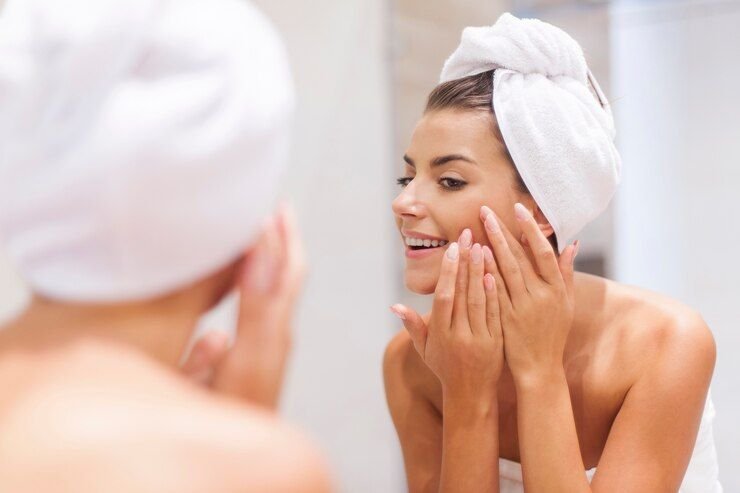
While many people can effectively manage mild to moderate acne with over-the-counter products and lifestyle adjustments, there are instances where professional intervention becomes necessary. Here’s a closer look at professional treatments for pimples and when it’s time to seek help from a dermatologist:
Prescription Medications: Dermatologists can prescribe topical or oral medications tailored to your specific acne type and severity. These may include:
Topical Retinoids: Derived from vitamin A, retinoids help unclog pores and reduce inflammation.
Topical Antibiotics: Antibiotic creams or gels can target acne-causing bacteria on the skin’s surface.
Oral Antibiotics: In cases of moderate to severe acne, oral antibiotics may be prescribed to reduce inflammation and control bacterial growth.
Hormonal Therapies: For individuals with hormonal acne, oral contraceptives or anti-androgen medications can help regulate hormone levels and improve skin condition.
Advanced Treatments:
Chemical Peels: Chemical peels involve applying a chemical solution to the skin to exfoliate dead skin cells and unclog pores, resulting in smoother, clearer skin.
Microdermabrasion: This non-invasive procedure uses a special device to gently exfoliate the skin, improving its texture and reducing acne lesions.
Laser or Light Therapy: Various light-based therapies, such as laser treatment or photodynamic therapy, can target acne-causing bacteria and reduce inflammation.
Extraction and Injections: Dermatologists may perform manual extraction of stubborn blackheads and whiteheads or administer injections of corticosteroids to reduce inflammation and speed up healing for large, painful acne cysts.
Isotretinoin (Accutane): In cases of severe, persistent acne that doesn’t respond to other treatments, isotretinoin may be prescribed. This oral medication reduces oil production, unclogs pores, and prevents acne recurrence, but it requires careful monitoring due to potential side effects.
When to Seek Help:
- If over-the-counter treatments fail to improve your acne after several weeks of consistent use.
- If your acne is severe, causing deep, painful cysts or widespread inflammation.
- If your acne is leaving scars or hyper pigmentation marks.
- If acne is negatively impacting your self-esteem and quality of life.
Remember, dermatologists are trained to diagnose and treat various skin conditions, including acne. Seeking professional help early can prevent acne from worsening and minimize the risk of scarring or other complications. Don’t hesitate to schedule an appointment with a dermatologist if you’re struggling to manage your acne effectively.
Conclusion
Banishing pimples and achieving clearer skin requires a multifaceted approach that addresses the underlying causes of acne while implementing effective treatments and making necessary lifestyle adjustments. In Piuny Cosmetics this guide, we’ve explored the various factors contributing to acne, dispelled common myths, and provided evidence-based strategies for managing breakouts.
Piuny Cosmetics understand that pimples develop due to factors like excess oil production, clogged pores, bacterial growth, hormonal fluctuations, and inflammation, individuals can tailor their skincare routines and lifestyle habits to target these root causes. Contrary to misconceptions, acne is not solely caused by poor hygiene or diet, although maintaining a clean, balanced lifestyle can certainly support overall skin health.
Implementing a consistent skincare routine that includes gentle cleansing, exfoliation, hydration, and targeted treatments with ingredients like salicylic acid or benzoyl peroxide can help unclog pores, reduce inflammation, and prevent future breakouts. Additionally, adopting stress management techniques, maintaining a healthy diet, and avoiding potential triggers can further support clear skin.
When over-the-counter treatments prove ineffective or acne becomes severe and persistent, seeking professional help from a dermatologist is crucial. Dermatologists can prescribe prescription medications, perform advanced treatments, and provide personalized guidance tailored to an individual’s unique skin concerns. Early intervention can prevent acne from worsening, minimize scarring, and improve overall skin health and confidence.
Ultimately, achieving clearer skin is a journey that requires patience, consistency, and a willingness to adapt. By combining knowledge of acne causes with evidence-based treatments and professional guidance when needed, individuals can overcome pimples and embrace a smoother, healthier complexion. Remember, everyone’s skin is unique, so finding the right combination of treatments may require some trial and error. With dedication and perseverance, clearer skin is within reach for anyone dealing with pimples.

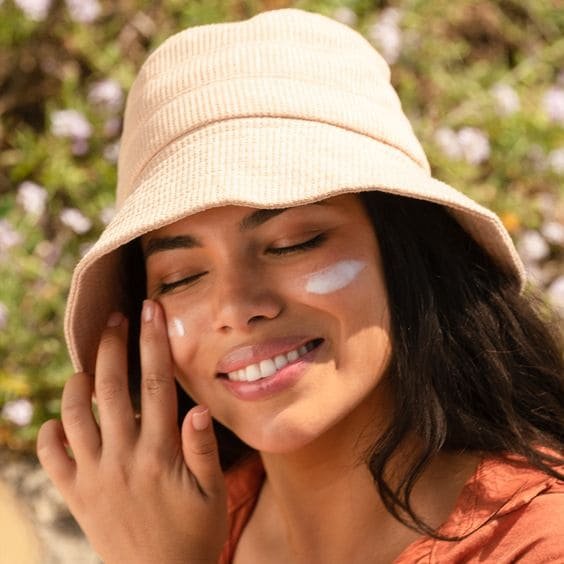
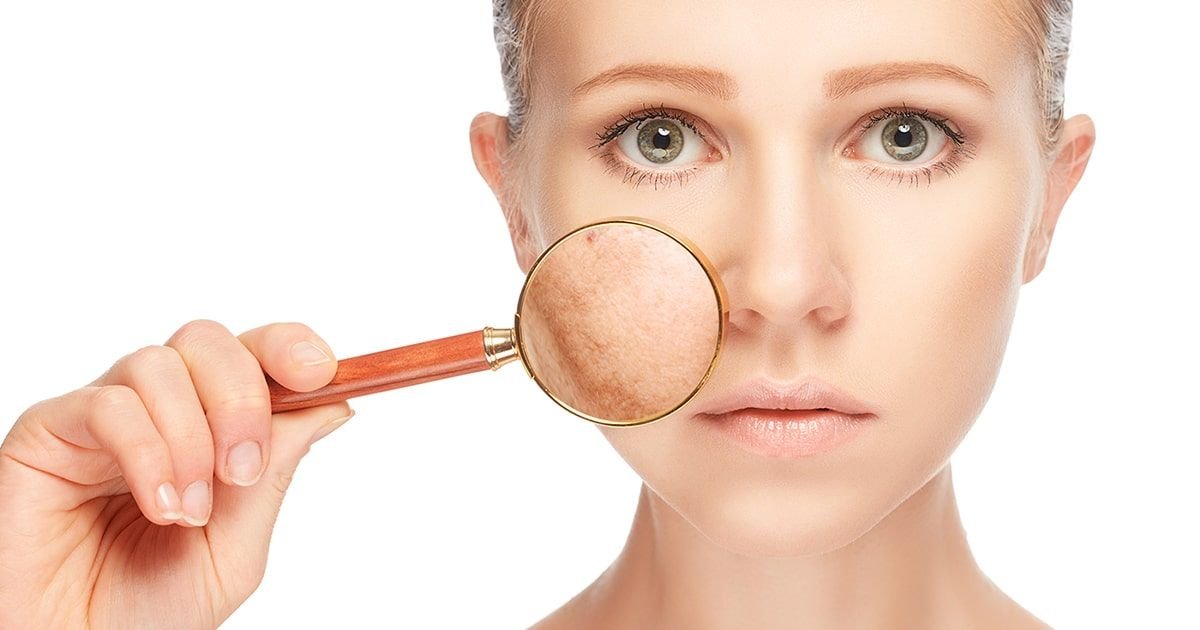
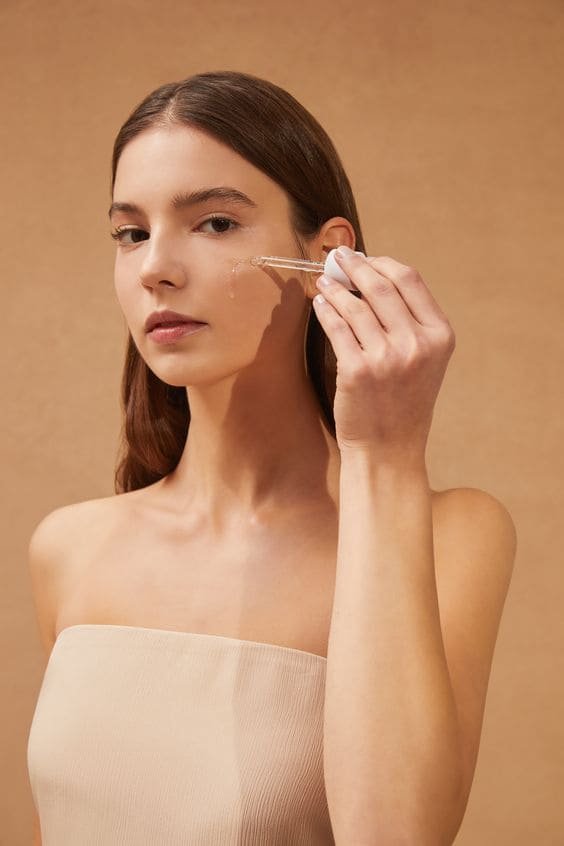
Leave a Reply